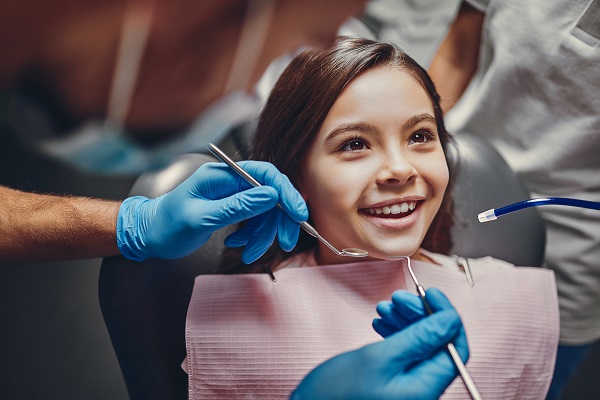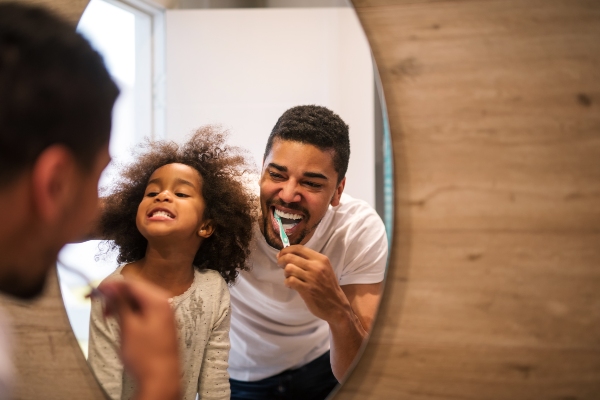How a Pediatric Dentist Can Help to Alleviate Child Fear and Anxiety

Children require consistent quality dental care from a young age in order to establish healthy oral habits, and regular visits to a pediatric dentist help accomplish this. Some children may develop feelings of anxiety and fear about the dentist as they grow, which may make these visits stressful for both young patients and parents alike. However, a dentist who works specifically with kids usually understands these issues and effective techniques for helping young patients feel calmer when visiting for an appointment.
Reasons for pediatric dental fear
Children may have several reasons for fearing the dentist, especially preschoolers and those in the early grades of elementary school. While some have unfounded anxiety, others could be fearful for several reasons:
- A past negative experience at a dental visit
- Fear of shots or other kinds of pain
- Fear of the unknown
- Learned fear from family members who have dental visit anxiety
Strategies for reducing fear
Children who express such fears may benefit from visiting a pediatric dentist. This type of oral care professional understands why young patients might be fearful and have several different methods at hand to make them feel relaxed and welcome when arriving for an appointment. A successful appointment may even help a child feel more confident about future visits.
A child-friendly environment
Many dental clinics that deal with young patients work to make the office environment welcoming to children. Toy corners, children's books, games, movies, and even interactive rides make visiting the dentist fun and may take patients' minds off an exam or treatment, reducing feelings of fear or anxiety while waiting for an appointment.
Fun terminology
Children who visit the dentist might fear adult, unknown dental terms and what they mean. A pediatric dentist can help young patients overcome this by using fun and child-friendly terminology, such as calling certain tools by silly or cool names or by playing pretend. For example, they can pretend the rinsing machine is a ray gun and they can "zap" bacteria after a cleaning.
Clear explanations
Older dental pediatric patients may fear visiting the dentist for a new procedure, such as being fit for braces, because of not knowing what to expect. This can increase anxiety over time because the patients may build frightening images of what might occur or what pain may be associated with the appointment. A children's dentist can reduce fear of the unknown by walking patients through the procedure, discussing what tools will be used, and answer questions patients and parents have so everyone can feel more confident on the day of the appointment.
Conclusion
It is common for children of all ages to have fear or anxiety about visiting the dentist, especially if the appointment is for reasons other than a simple cleaning. Pairing a patient with a pediatric dentist who understands the special needs and feelings of young people can banish fear and establish positive dental habits that build and protect beautiful smiles for a lifetime.
Request an appointment here: https://nettsmiles.com or call Nett Pediatric Dentistry & Orthodontics at (623) 759-7658 for an appointment in our Phoenix office
Check out what others are saying about our dental services on Yelp: Pediatric Dentist in Phoenix, AZ.
Recent Posts
Regular visits to a pediatric dentist who specializes in young patients are an important part of establishing good oral health practices. Many instances of severe dental conditions in children stem from either a lack of regard for proper hygiene or a lack of knowledge on the proper ways to care for a child's teeth. Check…
Pediatric dental care supports children's health, comfort, and development. Not only does it strive to detect and treat oral health problems early, but it also desensitizes children to dental visits to make each experience more comfortable. This special care and attention can motivate children to take good care of their teeth from a young age.Dental…
Cavity treatment for kids is a chief concern among parents, and for a good reason. Cavities are common in children of all ages. According to the Centers for Disease Control and Prevention, over half of the kids ages 6 to 8 have had at least one cavity in a primary tooth. The good news is…
Pediatric dentistry focuses on the oral problems that occur in children. Many dental issues in kids are similar to those that occur in adults. Without proper treatment, dental problems can progress to misaligned teeth and poor oral health. If you want to maintain your child’s dental health, here are the common dental issues that pediatric…


